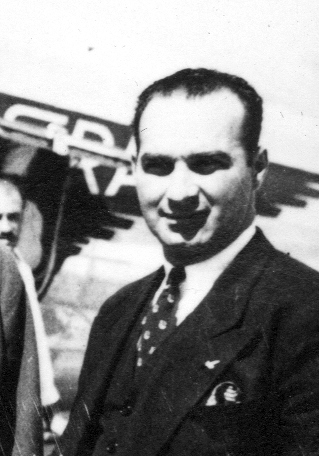Enrique Avellán Ferrés (Guayaquil, December 11, 1904 – Quito, 1984) was a distinguished Ecuadorian novelist, playwright, and legal scholar, celebrated for his contributions to both the literary and legal fields. Author of the compelling novel “La enorme pasión,” the critically acclaimed three-act play “Como los árboles” (1927), and the innovative musical fantasy “La rebelión del museo” (1969), Avellán Ferrés carved out a unique space in Ecuadorian culture. After earning a degree in social and political sciences from the University of Guayaquil, he went on to achieve notable success, including winning literary prizes and playing a pivotal role in copyright law advocacy, further establishing his legacy as a multifaceted intellectual force in Ecuador.
Early Life and Education
Born on December 11, 1904, in Guayaquil, Ecuador, Enrique Avellán Ferrés embarked on an educational journey that laid the groundwork for his diverse career. He studied at the Colegio Pedro Vicente Maldonado in Riobamba, followed by higher education at the Universidad Central de Ecuador and the Universidad de Buenos Aires. These institutions nurtured his intellect in social and political sciences, author’s rights, and patents, preparing him for a life dedicated to both the arts and legal advocacy.
Literary Career
Avellán Ferrés’s literary output was both prolific and varied, encompassing novels, plays, and musical fantasies. His notable works include the novel La enorme pasión, the three-act play Como los árboles (1927), and the musical fantasy La rebelión del museo (1969). His literature often explored themes relevant to Ecuadorian society, and his playwriting, in particular, garnered critical acclaim for its insight and innovation.
Public Service and Legal Career
Avellán Ferrés’s dedication to public service and the legal profession saw him occupying several key roles, such as the head of the General Section of the Ministry of Foreign Affairs and the secretary-prosecutor of the Universidad Central. He was also elected president of the College of Lawyers of Quito and served as the director of the Official Registry. His work in these capacities underscored his commitment to the betterment of Ecuadorian society and the legal system.
Contributions to Copyright Law
A passionate advocate for the rights of authors and composers, Avellán Ferrés played a pivotal role in the intellectual property rights movement in Ecuador. He was a delegate at international conferences on copyright law and founded a society of authors in Ecuador. Although the society struggled to establish itself, his efforts culminated in the creation of the Sociedad Ecuatoriana de Autores in 1964, marking a significant step forward for copyright protection in the country.
Awards and Recognitions
Avellán Ferrés’s literary talent was recognized early in his career when he, along with Hugo Mayo and María Luisa Lecaro, won the Savia Magazine Poetry Contest in 1927, celebrating the “Fiesta del Montuvio” in Guayaquil. This accolade was a testament to his poetic prowess and his ability to capture the essence of Ecuadorian culture.
Legacy
Enrique Avellán Ferrés passed away in 1984 in Quito, leaving behind a legacy that spanned literature, law, and advocacy for intellectual property rights. His contributions to Ecuadorian culture and the legal system have made him a revered figure, remembered for his dedication to the arts and the protection of creators’ rights. Through his diverse body of work and public service, Avellán Ferrés exemplified the spirit of Ecuadorian intellectualism and cultural richness.
Works
- La enorme pasión (Enormous Passion)
- Como los árboles (1927; Like the Trees)
- El mismo caso (1938; The Same Case), read it for free here.
- Sin caminos (1939; Without direction)
- Manos de criminal (1939; Criminal Hands), read it for free here.
- Clarita la negra (1966; Black Clarita)
- Tiempo y ausencia (1969; Time and Absence)
- Correntada (1969; River Current)
- La rebelion del museo (1969; Rebellion in the Museum)
- Teatro para niños (1973; Children’s Theater)
- Tablero: cuentos (1941)

